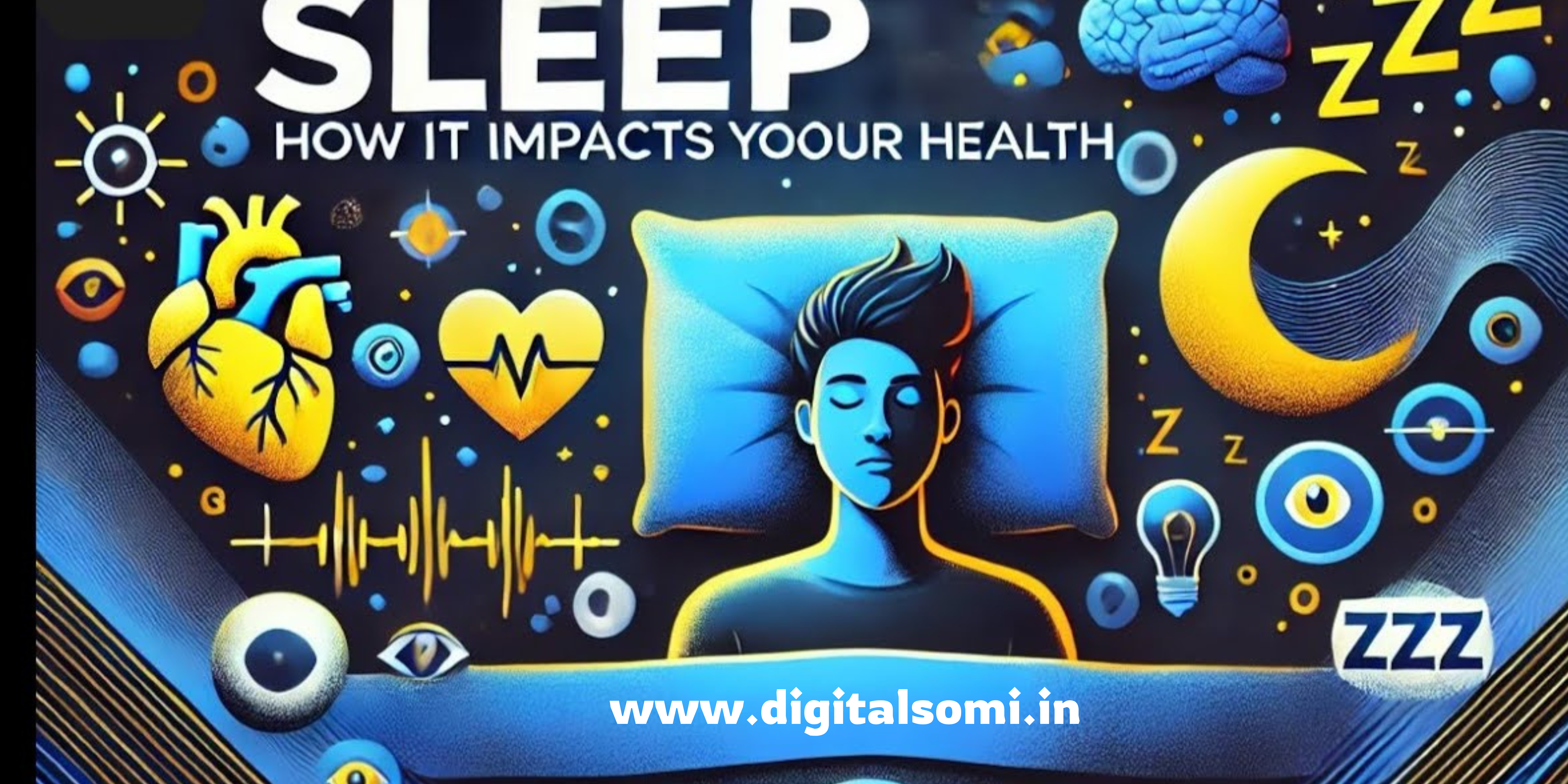Sleep is one of the most vital, yet often neglected, pillars of health and well-being. While modern life pushes us to prioritize productivity over rest, science continues to highlight the undeniable connection between sleep, health, and productivity. In this blog, we’ll explore the science of sleep, why it’s essential, and how optimizing your sleep can transform your health and enhance your efficiency.

Why Is Sleep So Important in the Science of Sleep?
Sleep is not just downtime for the brain and body; it is a complex biological process that restores and rejuvenates us. During sleep, the brain consolidates memories, processes emotions, and clears out toxins, while the body repairs tissues, balances hormones, and strengthens the immune system.
Skipping sleep doesn’t just make you feel tired. Chronic sleep deprivation has been linked to conditions such as obesity, diabetes, heart disease, and mental health disorders like anxiety and depression. Studies also show that sleep deprivation impairs cognitive functions like attention, decision-making, and creativity, making it a critical factor in productivity.
Understanding Sleep Cycles: The Science of Sleep Explained
Sleep happens in cycles, with each cycle lasting about 90 minutes and consisting of four stages:
- NREM Stage 1: This is the transition between wakefulness and sleep. It lasts only a few minutes.
- NREM Stage 2: A light sleep phase where the heart rate slows and body temperature drops. This stage prepares the body for deep sleep.
- NREM Stage 3: Deep sleep, also known as slow-wave sleep, is essential for physical recovery, immune system strengthening, and overall growth.
- REM Sleep: Rapid Eye Movement (REM) sleep is where most dreaming occurs. This stage is crucial for emotional regulation, memory consolidation, and brain development.
For optimal health, a person needs to go through 4-6 sleep cycles per night, which equates to 7-9 hours of sleep.
The Science of Sleep: What Happens When You Don’t Get Enough?
1. Cognitive Decline:
Lack of sleep affects the brain’s prefrontal cortex, impairing judgment, decision-making, and focus. A sleepless night can reduce cognitive performance to the level of someone who is legally intoxicated.
2. Weakened Immune System:
Sleep is when your body produces infection-fighting substances like cytokines. Without adequate rest, you’re more prone to illness.
3. Hormonal Imbalances:
Sleep regulates hormones such as cortisol (stress hormone), ghrelin, and leptin, which control hunger. Sleep deprivation can lead to weight gain and metabolic issues.
4. Reduced Productivity:
Studies show that sleep-deprived workers are less efficient and more prone to errors. This creates a ripple effect in workplaces, reducing overall productivity.
The Connection Between Sleep, Health, and Productivity
Sleep directly impacts productivity through:
- Memory Consolidation:
Are you learning something new? Sleep ensures that your brain processes and stores the information efficiently. Without it, retention decreases significantly. - Energy Levels:
A good night’s sleep replenishes energy stores, ensuring you start your day with vigor and alertness. - Enhanced Creativity:
REM sleep fosters out-of-the-box thinking. Many groundbreaking ideas have emerged after a good sleep, including the periodic table and the structure of DNA. - Emotional Resilience:
Sleep helps regulate emotions, enabling you to handle stress and challenges with a clear mind.
How to Improve Your Sleep for Better Health and Productivity
Achieving quality sleep isn’t just about quantity; it’s about establishing habits that promote restorative rest. Here’s how:
1. Stick to a Sleep Schedule
Go to bed and wake up at the same time every day, even on weekends. This consistency helps regulate your internal clock, making it easier to fall asleep and wake up naturally.
2. Create a Sleep-Friendly Environment
- Darkness: Use blackout curtains or eye masks.
- Silence: Invest in earplugs or white noise machines.
- Comfort: A good mattress and pillow tailored to your preferences can make a world of difference.
- Cool Temperature: The ideal room temperature for sleep is around 65°F (18°C).
3. Limit Exposure to Blue Light
Blue light from screens interferes with the production of melatonin, the sleep hormone. Avoid screens at least an hour before bedtime, or use blue light filters.
4. Watch Your Diet
Avoid heavy meals, caffeine, and alcohol close to bedtime. Instead, opt for light snacks like bananas, nuts, or chamomile tea, which can promote sleep.
5. Exercise Regularly
Physical activity improves sleep quality, but avoid intense workouts right before bedtime, as they can energize you and delay sleep.
6. Manage Stress and Anxiety
Practice relaxation techniques like meditation, deep breathing, or journaling to calm your mind before sleep.
7. Limit Naps
While napping can be beneficial, long or late naps disrupt your nighttime sleep cycle.
Signs You’re Getting Enough Sleep
How do you know if your sleep is truly restorative? Look for these signs:
- You wake up feeling refreshed without relying heavily on an alarm.
- You feel alert and energetic throughout the day.
- You can focus and concentrate without significant lapses.
When to Seek Professional Help
If you’ve tried improving your sleep habits but still struggle, it may be time to consult a sleep specialist. Conditions like insomnia, sleep apnea, or restless leg syndrome require medical intervention.
Sleep: Your Superpower for Success
Sleep isn’t a luxury; it’s a necessity. By prioritizing rest, you’re not only safeguarding your health but also unlocking your full potential for productivity. In a world that glorifies the hustle, let sleep be your secret weapon for achieving more, staying healthier, and living a balanced life.
So tonight, let sleep take center stage in your self-care routine. Your body, mind, and future self will thank you. Click here







Thank you for the auspicious writeup. It in fact was a amusement account it.
Look advanced to far added agreeable from you! By the way, how
can we communicate?